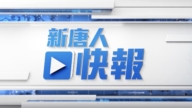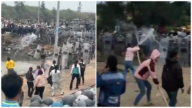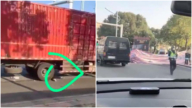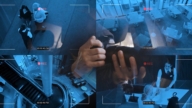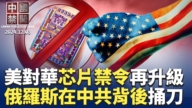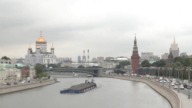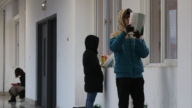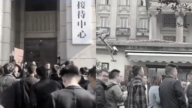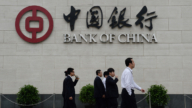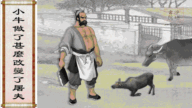【新唐人2011年12月6日訊】中共中央政法委書記周永康日前向省級幹部講話,要求各級政府把社會管理工作,作為「重大而緊迫」的課題來抓,應對經濟的負面影響。外界分析,這番言論突顯中共當局對於經濟滑坡可能導致社會動盪,日益感到不安,唯恐中共十八大前引爆社會和政治危機。
周永康12月2號在一項座談會上承認,當局還沒有形成一套完備的社會管理體制機制。而目前中共所謂的「社會管理」也是維穩的代名詞。
深圳「當代社會觀察研究所」所長劉開明指出,將「社會管理」納入中共政法委系統,是中共長期暴力維穩思路的延續和謬誤。
劉開明:「我們社會應該有創新、社會應該有管理,而不是一味的從維穩角度鎮壓。但是,我們整個的社會創新或者管理它是放在政法委口,它是從傳統專制的角度來看社會的管理、社會的創新,這樣應該不利於社會的發展,因為現在主要的矛盾實際上是中國社會快速的轉型。」
就在《新華社》發表周永康講話的兩天前,最新數據顯示,中國製造業出現萎縮,中國央行為緩解經濟更大的減速,而出臺了下調存準率放鬆信貸的政策。
劉開明:「特別是出口工業下滑,很多的進城外來工都是在出口工業工作,整個目前社會保障還沒有覆蓋這個群體,他們返回農村的可能性又非常小,所以這樣就會導致整個勞動力市場甚至經濟的不穩定。」
最近,由於經濟原因導致的罷工抗議明顯增多。上海浦東的新加坡赫比家用電器廠因為遷廠無適當補償,導致工人失業,引發工人罷工抗議。到12月5號,罷工已進入第6天。
深圳「精模電子科技廠」3千多員工11月22號大罷工,抗議加班時間過長,工人每天工作16個小時以上。廣東東莞市一家臺資鞋廠裁員搬廠,全廠6千工人11月17號罷工遊行,當局派出數百警察武力驅散。
武漢建設銀行12月1號發生爆炸案,造成2人死亡、15人受傷。政治經濟評論家草庵居士指出,中共維穩模式只會導致社會更加不穩、民怨更深。
草庵居士:「中國的維穩費用已經超過了軍費,這本身就說明瞭中國一個很大的問題,就是政治統治上出現了很大的危機,這個危機是民眾對整個政府和社會的不滿所形成的,而這種中國社會動亂已經是每年幾十萬起的數量發生了。」
廣東省委書記汪洋最近嚐試了應對群體事件新思路。11月18號,廣州市花都區數百民工打著「還我血汗錢」等橫幅,喊著口號遊行討薪,首次出現了警車開路、警察護航的場景。
11月21號,廣東陸豐市烏坎村數千村民大遊行,打著「反對獨裁」、「還我人權」等大量標語,遊行到市政府抗議非法徵地、選舉不公,當局也沒有強行制止。
劉開明:「我覺得這個是一個積極的轉向,很長的時間中國對群體事件大多數是高壓來鎮壓下去,這樣實際上導致更多的民怨。地方政府的某一些做法不一定具有全面性的,因為人為的因素、個人的因素很大,並不是制度性的都這麼來處理,我們看不到這種變化。」
外界分析,當今中國經濟、社會、政治危機,是中共極權腐敗制度的必然結果,唯有進行根本的政治改革,否則各種危機會越來越嚴重。中共必然要解體。
新唐人記者周玉林、李元翰、李若琳採訪報導。
CCP Prioritize Maintaining Stability Over Economic Slowdown
Recently, the Secretary of Central Political and Law
Committee of the Chinese Communist Party (CCP) regime,
Zhou Yongkang, gave instruction to provincial-level cadres.
Authorities at each level were asked to make social
management a priority as a “significant and urgent" task,
in order to offset the negative impact of economic slowdown.
Comments say that Zhou’s remarks indicate the CCP
regime’s growing anxiety over potential social unrest,
fearing a political crisis ahead of the CCP 18th Congress.
On December 2, Zhou Yongkang admitted at a seminar
that fully fledged social management mechanisms have not
yet been established by the CCP authorities in China.
However, the term “social management” by the CCP regime
is a synonym for “maintaining stability”.
Director of the Institute of Contemporary Observation in
Shenzhen, Liu Kaiming, points out that
incorporating social management into the CCP Central Political
and Law Committee system is an extension of a train of thought of violent stability-maintenance, and a long-term fallacy.
Liu Kaiming: “Our society should be developed with innovation
and management, rather than with blind suppression in view of stability maintenance.
Now the whole society is controlled by CCP’s Political and
Law Committee.
It treats social innovation and management from the
perspective of authoritarian rule, which is not conducive to social development.
In reality, the current main contradiction is focused on the
issue of Chinese societies rapid transformation."
Just two days before Zhou’s speech, the latest data showed
that China’s manufacturing sector began shrinking.
China’s central bank cut the Reserve Requirement Ratio and
eased monetary policy to alleviate the pressure of economic slowdown.
Liu Kaiming: " Decline in exports is particularly obvious.
Lots of migrant workers are working in the export sector.
But the current social security system hasn’t covered this
group of people.
The possibility of returning to their rural hometowns
is very small.
So in the future, this may result in an instable labor market
and even an unstable economy."
Recently, China is seeing a significant upsurge in labor
strikes related to the economic slowdown.
A strike of laid-off factory staff of Hi-P International in Shanghai,
a Singapore electronics firm, entered the 6th day on December 5.
The relocation of the Hi-P Shanghai factory generated
mass layoffs, and did not offer reasonable compensations to employees.
On November 22, over 3,000 staff of Shenzhen-based
Jing Mold Electronic Technology Co. staged a strike to protest excessive overtime working, over 16 hours per day.
In Dongguan, a Taiwanese-owned shoe factory’s relocation
and job cut provoked a strike by 6,000 employees.
CCP local authorities mobilized hundreds of police to
disperse the strike with violence.
Wuhan Construction Bank was bombed on December 1,
causing two deaths and 15 injuries.
Political commentator Cao’an Jushi believes that
the model of CCP’s stability maintenance will only lead to more social instability and deeper civilian resentment.
Cao’an Jushi: “China’s stability maintenance expenditure
has exceeded the military expense.
This fact itself tells a big problem in China; that is,
a great crisis arose from the political ruling.
The crisis was caused by public discontentment, both with the
regime and society, while such social unrest has reached hundreds of thousands each year. “
CCP Secretary of Guangdong, Wang Yang, recently
tried a new way to cope with the mass protest.
On November 18, hundreds of migrant workers in Huadu
District, Guangzhou, took to the streets, shouting slogans and
holding banners written in words “Return my hard-earned
money". For the first time, police cars accompanied the parade of protesters.
On November 21, thousands of villagers from Lufeng,
Guangdong staged a mass demonstration.
The protesters marched to the city hall to protest official’s
illegal acquisition of land and inequitable elections,
holding banners with words such as “against dictatorship"
and “return my human rights."
Guangdong authorities did not repress the protest.
Liu Kaiming: “I think this is a positive direction.
For a long time, China’s authorities have taken heavy-handed measures
to crack down on the mass protests, which actually
incurred more resentment.
The actions of some localized authorities’ cannot
represent holistic perspective, as human factors and personal factors are significantly involved.”
Analysts say that in today’s China, the emergence of economic,
social and political crises is an inevitable result of a corrupt CCP totalitarian system.
Only by carrying out fundamental political reforms,
can these crises be addressed.
Otherwise, they will become increasingly intensified.
The CCP itself is bound to disintegrate.
NTD reporters Zhou Yulin, Li Yuanhan and Li Ruolin


